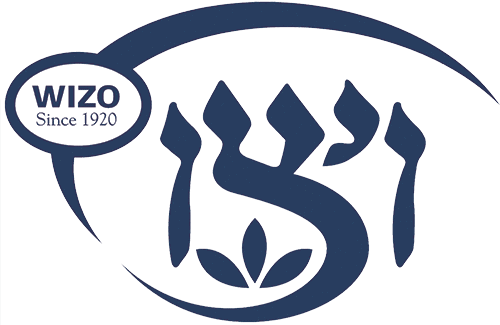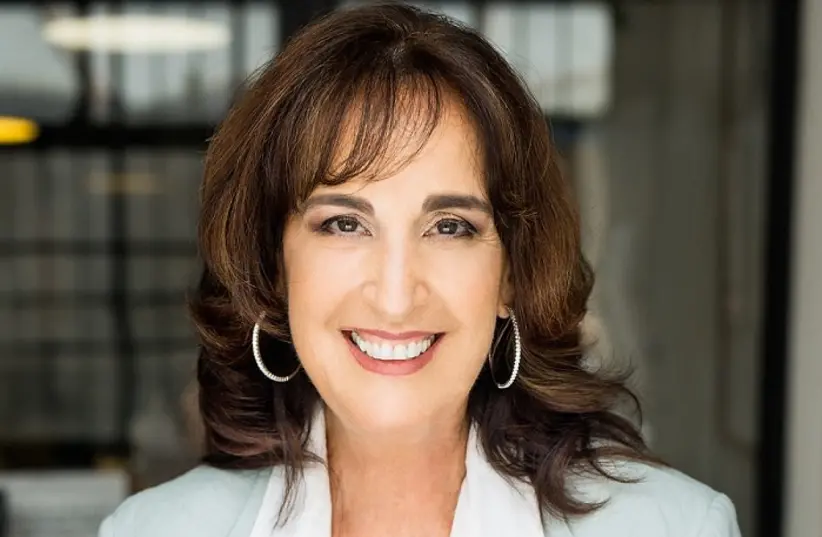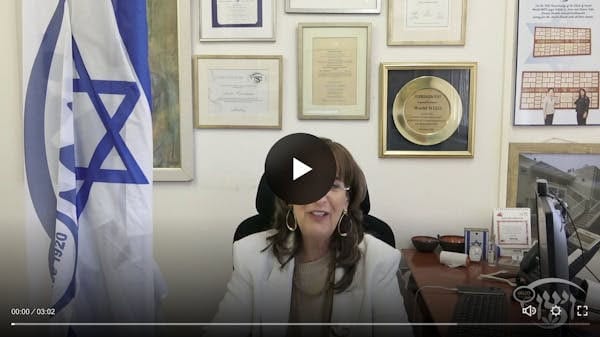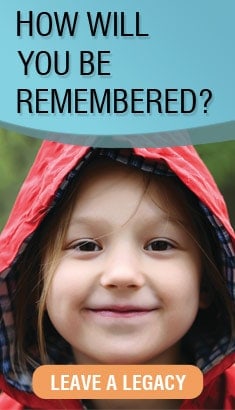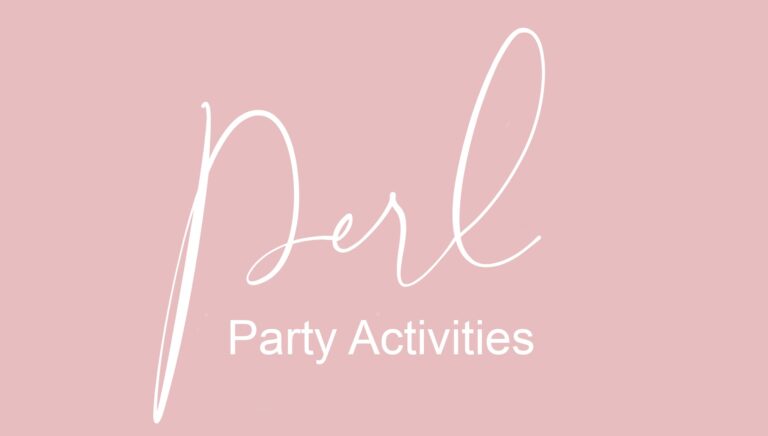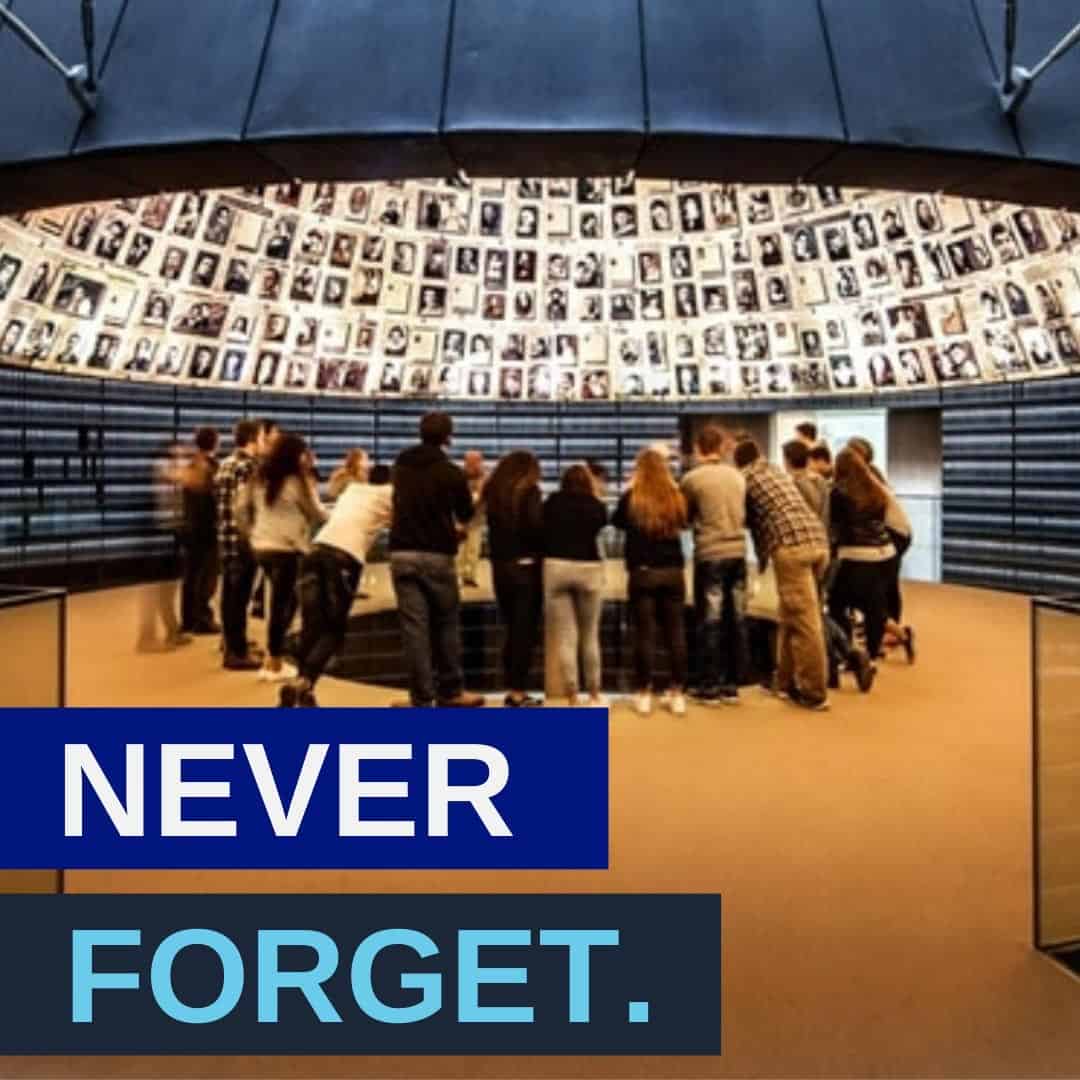
Dear friends,
I would like to begin by saying that we are acutely aware of the deep distress that you, and all those who love Israel around the world, have been feeling since that terrible day of October 7th. In some ways, it is even harder for you than it is for us, because every morning, you go out into a world that might be sympathetic to Israel, and may be horrified at the atrocities committed by Hamas; but most of that world, in Australia and anywhere else in the diaspora — does not feel the punch in the gut that you and I feel. That terrible — and very personal — shock and grief. The words “Einsatzgruppen” and “Babi Yar” do not pop into their heads. Their world didn’t turn upside down on October 7.
Experiencing this traumatic time in Israel, where everybody is having the same experience – is in some ways easier. Mourning is meant to be done in a group. That’s the role of the Shiva in Jewish tradition. To mourn together.
As individuals and families, we may have been overwhelmed by the grief and outrage. But WIZO, as Israel’s leading educational and social welfare organization, whose fundamental responsibility is to the people of Israel, could not allow ourselves to be paralyzed by this tragedy — and we sprung right into action.
We immediately understood that this was going to be a long period – weeks, likely months – of dislocation and disruption. So we formed an emergency cabinet, led by me and our CEO, Mira Mines. Our first task was to reach out to our entire WIZO community in Israel – our 6,000 employees and thousands of volunteers, to make sure everyone was accounted for, and offering initial aid and comfort to those affected by the massacre and its nightmarish aftermath. Every one of us is going through difficult times, and nearly every home and family has been touched by this tragedy. Some have lost loved ones to murder or kidnapping; many others have husbands, brothers and children who have been drafted for emergency service in the IDF, most of them on the dangerous front lines of the war.
As of today, 70 WIZO employees have been called up for emergency military service, and we are in touch with the families of every single one of them.
Simultaneously, we began to take stock of the status of our hundreds of educational and social welfare institutions, our day care centers, schools and youth villages, women’s shelters, and much more. We understood immediately, in the first hours and days of the war, that the country would be closing down, schools and day care centers shuttered, and the economy at a standstill.
Within days, we began putting multiple initiatives in motion, such as convincing the government to allow us to open 11 emergency day care centers serving the children of critical medical personnel in 7 major hospitals around the country, so their parents could be free to perform their life-saving work on the more than 4,000 Israelis wounded on October 7th. For about 10 days, these 11 WIZO centers were the only day care centers open in Israel.
This week, I visited one of those day care centers, at Shamir Medical Center near Rishon Lezion, and I met some of the parents who work in the hospital. One of them, a scientist who works in the Pathology Department, told me something that I cannot get out of my mind: as a pathologist, she normally works with tissue samples to help doctors with their diagnoses. But since the war began, she has spent all her time identifying the bodies of Israelis murdered by Hamas. Tragically, that task has not yet been completed. The numbers are still rising, and more bodies are still being identified.
Another emotional meeting I had this week was with an Ethiopian woman named Ziva Taka, a mother mourning her 21-year-old son Binyamin Taka, who was killed on the first day of the war while serving as a soldier in the Golani Infantry Brigade. Ziva’s personal story encompasses all the different faces of WIZO. Her son Binyamin was a graduate of WIZO’s Nachlat Yehuda Youth Village. 15 years ago, Ziva and her children spent a year in the WIZO shelter for women victims of domestic violence in Jerusalem. And then, after she left the shelter, she worked for many years as a teacher in the WIZO day care center in Beit Hakerem in Jerusalem, a few meters from the shelter.
We spent a long time talking to and comforting Ziva, crying together. Binyamin has an older sister who is also a graduate of Nachlat Yehuda, and a younger brother who idolized Binyamin, who was like a father to him – and the young kid was totally broken. In the Ethiopian culture in Israel, as in many immigrant cultures, the oldest children in the family, who grew up in Israel, serve as a bridge between their immigrant parents and the society around them. So this was a huge loss to the family, in so many ways.
Getting back to what WIZO is doing on the ground: Our volunteers are active all over the country, caring for people in their community, and working to bring food, clothing and other assistance to the people of the south, and to our soldiers.
We have launched a campaign called “With WIZO – You Are Never Alone, which offers a wide range of support services, provided by WIZO volunteers, to women whose spouses have been called to military service. These volunteers will babysit, do your food shopping, help you cook – and of course lend a sympathetic ear and loving embrace.
We have increased the hours and staffing of our three national telephone hotlines: one for advice to parents of small children; one for women victims of domestic violence; and one for men in the cycle of domestic violence.
Three of WIZO’s youth villages are home to 250 participants in the Na’aleh program. These are Jewish teenagers from around the world, who come to Israel to live and study. Many of these children came to us last year, as refugees from war-torn Ukraine. Imagine the trauma they are experiencing. But we are doing everything we can to ease their fears and homesickness.
Last week, our youth village in Petach Tikva, WIZO Gan Vanof, began hosting over 100 displaced Israelis from both the south and north. These are people who have lost their homes or were forced to leave them. On Sunday, I visited them, and was deeply touched – but not at all surprised — to see the incredible hospitality we are extending to these families. They are being smothered in kindness and generosity, being fed delicious and plentiful food, with all kinds of recreational and educational activities being provided to them, and so importantly – to their children. The village staff has gone all out to help them, including much-needed emotional and psychological support. It was so beautiful to see the children roaming around the open and green spaces, playing with animals in the petting zoo, and simply being in a place that is so calm, loving and therapeutic. Hundreds of thousands of Israelis have been displaced for their homes, and Israeli hotels are filled with people from places like Sderot and Ashkelon. But I can tell you with absolute certainty that the people at Gan Vanof are having an experience unlike any other, including those staying at the fanciest hotels. Because there is nothing like the total, loving embrace of WIZO.
Our Parent’s Home, a facility for the elderly, with 110 residents between 75 – 105 years old, including 35 Holocaust survivors, is operating, and we are taking good care of these wonderful people who have contributed so much to our country. Here too, we have begun taking in displaced Israelis from the south, and housing them in Parents Home. To give you an idea of the kind of people who we are hosting: one family, from Beer Sheva, is a single mother struggling with cancer, her two parents, both over 90, and a granddaughter. We have been able to host these families with the generous support of donors from WIZO Australia.
We continue to support 140 women and 250 children, in 9 different communities, who are part of our “Safety Net” program, a diverse support program for women after they leave domestic violence shelters, to help insure they are not compelled to return to their violent spouses. These women face constant challenges even in normal times, but the situation is so much worse during wartime. Here too, we are benefitting from support from WIZO Australia.
And these are just a few of the many initiatives that WIZO is taking during this time. We are everywhere in Israeli society. And every day will bring new initiatives, new ways of helping our people.
Among all the tragedy, and the enormous uncertainty about the future, about the war that has really just started, I am pleased to inform you that a number of our key services are gradually returning to operation. As of today, we have reopened 132 of our day care centers, out of a total of 167. There are now over 5,000 babies and toddlers being cared for again by our devoted teams. Most of the centers are not operating at full capacity, because we have had to limit the number of children in each center. Why? Because if there is a red alert for incoming rockets – a frequent occurrence in most places in the country – there is no way that 4 day care teachers can move 70 babies and toddlers from their classroom to the bomb shelter —- in 90 seconds.
Our high schools are also reopening, and we hope that the developments in the war will not force Israel to again close down these educational institution, which would be terrible for the kids, their parents, and the economy. Let’s be optimistic.
I know you are all concerned about the beautiful children living in WIZO Ahuzat Yeladim in Haifa. Yossi Sargussi updated me that despite the war and tension in the north, most of the students have remained on campus. Although the school is closed, all the therapeutic and recreational activities are still continuing. The children have spent some of their nights in shelters because of numerous rocket alerts.
Several members of the staff have been drafted into military service, but the most devastating news is that Paratrooper Brigade Sergeant Adam Agmon, who volunteered for a year at Ahuzat Yeladim before his army service, was tragically killed in combat.
Another of your flagship projects is Makom Balev in Beer Sheva. Because of its geographical location in southern Israel, the center is closed, but the dedicated staff and WIZO volunteers are keeping in close, daily touch with all the young women, providing them with food and other physical needs, and providing counselling and support to help them get through this difficult period.
There is so much more I could tell you about, so many personal stories of tragedy, or heroism and of simply enormous love and endless giving. This is WIZO.
I cannot conclude without mentioning the absolutely incredible show of solidarity we have gotten from all of our 38 federations around the world. The international emergency campaign we launched has been an overwhelming success, bringing millions of shekels so urgently needed to keep our organization running when there is so much uncertainty, and financing urgent needs of the moment.
WIZO Australia has played an important role in this campaign, and we are extremely grateful to you, your members and supporters, who have given to your annual campaign, and then again to the Emergency Campaign.
But your support goes beyond your generous philanthropy. Although you are so far away, we feel your love and deep concern very strongly.
We are one family. WIZO. Israel. The Jewish people. We will survive this, we will overcome, and we will flourish. As long as we stay together.
Am Yisrael Chai.
Thank you.
Anita Friedman
